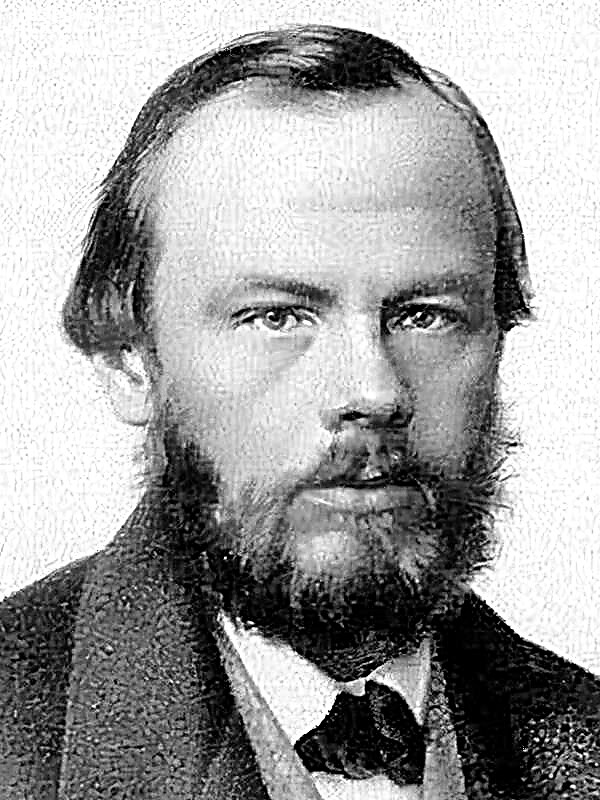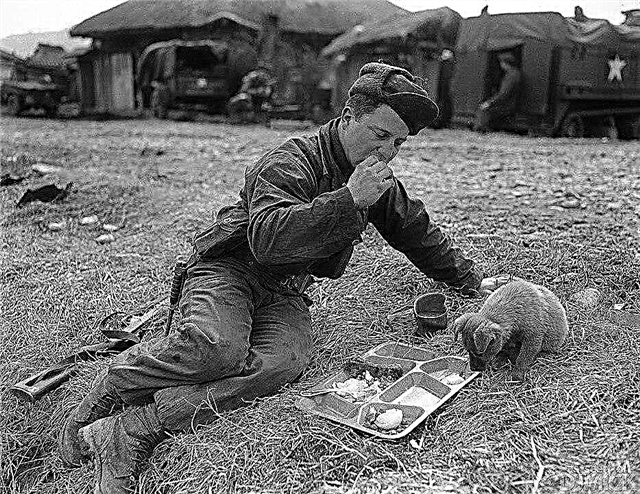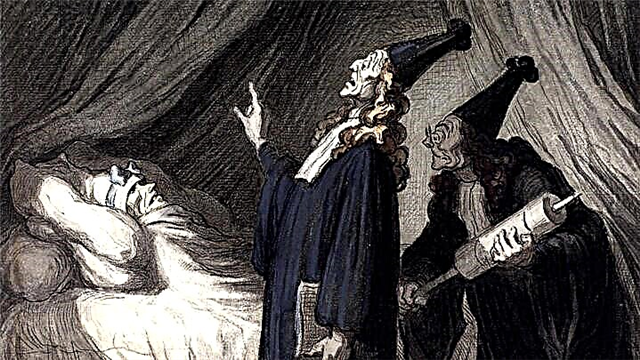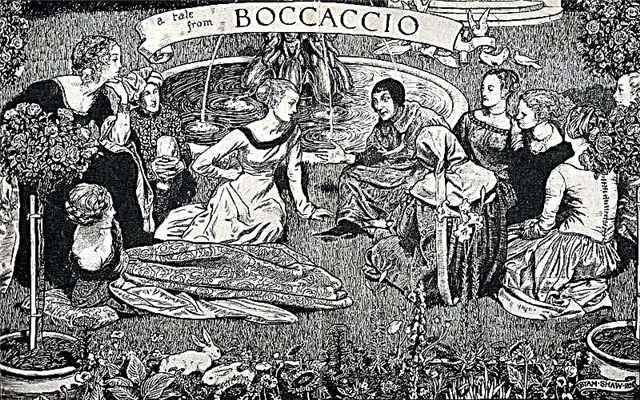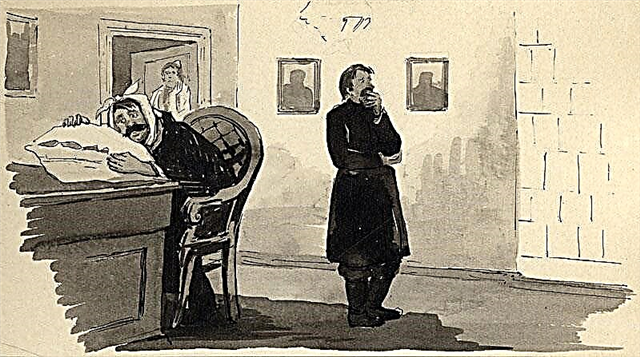Share
Pin
Tweet
Send
Share
Send
Arguments from literature
- (60 words) In the comedy A.S. Griboedov's “Woe from Wit” conscience appears to readers as an attribute of a person’s spiritual culture. So, Chatsky does not accept the service “not in the case, but in the person”, just like the infringement of the rights of the peasants. It is the sense of justice that makes him fight the Famustian society, showing its flaws - this suggests that the "sense of conscience" in the hero does not sleep.
- (47 words) A similar example can be seen on the pages of the novel by A.S. Pushkin "Eugene Onegin." Tatyana is a man of conscience. Despite the recognition of Eugene and her feelings for him, she chooses not love, but duty, remaining a faithful wife. It speaks of conscience, which implies loyalty to its principles and respect for loved ones.
- (57 words) In the novel by M.Yu. Lermontov "Hero of our time" the main character - G.A. Pechorin is a "suffering egoist." Conscience torments him, but he tries in every way to resist it, proving to himself that this is just boredom. In fact, this awareness of their own injustice saddens Gregory. Conscience becomes not only the “measure” of morality, but also the real “instrument” of the soul against the vice that engulfed it.
- (56 words) Conscience is, first of all, honor and dignity that are absent from the main character of the work of N.V. Gogol's "Dead Souls" - Chichikova. A person who does not have a "remorse" is not able to be honest. This is what Chichikov’s gamble says. He is used to deceiving people, forcing them to believe in the nobility of “spiritual impulses”, but all his actions speak only of the baseness of his soul.
- (50 words) A. I. Solzhenitsyn in the story “Maternal Court” also speaks of moral qualities. The main character - Matryona - is a man whose attitude to life speaks of a pure soul, empathy with people and true self-sacrifice - this is a sense of conscience. It is she who leads Matrena and does not allow her to pass by someone else's misfortune.
- (45 words) The hero of the novel by N. M. Karamzin “Poor Liza” suffered from attacks of conscience until the end of his life. Despite the sincere love of Lisa, Erast still chooses a rich woman in order to improve her financial situation. Treachery led the girl to suicide, and the culprit executed himself for this until his death.
- (58 words) I.A. Bunin in the collection "Dark Alleys" also raises this problem. “Everything passes, but not everything is forgotten,” says the former serf peasant woman who met the gentleman who had once abandoned her. Conscience did not make him suffer, probably, therefore, fate punished him, destroying his family. An unscrupulous person does not learn anything and does not feel his responsibility, so everything in his life is sad.
- (58 words) D.I. Fonvizin in the comedy "Undergrowth" reveals the concept of conscience on the example of one of the main characters - Mrs. Prostakova. She is trying in every possible way to rob her relative, Sophia, in order to finally “take over” her inheritance, forcing her to marry Mitofanushka — this suggests that Prostakova does not have a sense of moral responsibility to people, which is conscience.
- (59 words) M. A. Sholokhov in the story “The Fate of a Man” says that conscience is an honor and moral responsibility, proving this with the example of the main character, Andrei Sokolov, who controlled the temptation to save his life at the cost of betrayal. A sense of his involvement in the fate of the country sent him to an honest battle for his homeland, thanks to him he survived the struggle for freedom of the fatherland.
- (45 words) Often, conscience is the key to trust. So, for example, in M. Gorky's "Chelkash" the main character takes the peasant guy into the business, hoping for his decency. However, Gavrila does not have it: he betrays a comrade. Then the thief throws money and leaves the partner: if there is no conscience, there is no trust.
Examples from personal life, movies, media
- (58 words) Conscience is internal self-control; it does not allow one to act badly. For example, my dad will never be rude or offend with an “unkind word,” because he understands that people need to be treated the way you want them to treat you. This is the golden rule of morality from the course of social studies. But it only works when the person has a conscience.
- (49 words) In the film by Gibson “For reasons of conscience” the problem of self-sacrifice is raised, which is one of the main features of a conscientious nature. The main character - Desmond Doss - risked his own life in order to "patch up" the world, which is "mired" in endless wars. No matter what, he saved people from a hot spot, guided by conscience.
- (43 words) Conscience is a heightened sense of justice. Once, a sister's friend told her secret to the whole class. I wanted to “teach a lesson” to her, but during the conversation it turned out that both girls did wrong. Realizing this, they reconciled. Thus, conscience must speak in a person, not revenge.
- (58 words) It is enough just to see once the infringement of the rights of another person, and immediately it becomes clear what the word "conscience" means. Once, walking past the playground, I saw (a) a crying little girl who asked the boy not to touch her doll. I went up to them and tried to figure out what was the matter. In the end, they continued to play peacefully. People should not pass by other people's troubles.
- (50 words) Conscience does not allow a person to abandon a creature in need that needs help. My friend told this story: during frosty evenings all homeless animals suffer from hunger, and every day he goes out into the street, despite the bad weather to feed them. To feel love and live it means to be a conscientious person!
- (50 words) In Mark Herman's film “The Boy in the Striped Pajamas”, the issue of conscience is particularly acute. The inner experiences that torment the soul of the protagonist make him fall into a real adult world - a world of cruelty and pain. And only a small Jewish boy is able to show him what is called a "conscience": to remain human, despite external circumstances.
- (54 words) Our ancestors said: "May a clear conscience be the measure of your actions." So, for example, a decent person will never take someone else's, so those around him trust him. What can not be said about a thief who will never gain respect in society. Thus, conscience, first of all, shapes our appearance in the eyes of our environment; without it, an individual would not be possible to live among people.
- (58 words) “Conscience, even without teeth, can gnaw,” the proverb says, and this is true. For example, in a feature film based on real events, Jonathan Teplitsky tells about the fate of Eric Lomax, who was captured by Japanese troops during the war, and his “punisher”, who throughout his life regretted what happened: torture and moral humiliation of Lomax.
- (58 words) Once in childhood, I broke my mother’s vase, and I had a difficult choice: confess and be punished (oops) or keep silent. However, the feeling that I did (a) something bad in relation to another person made me apologize to my mother and realize my own mistake. Thanks to honesty, my mother forgave me, and I realized (a) that one should not be afraid to act according to conscience.
- (62 words) In the movie "Afonya" the director Georgy Danelia introduces us to the "unscrupulous" person who, despite the needs of others, blocked the water in the house during an emergency. When asked by the tenants if he had a conscience, he replied that he had a conscience, but no time. This situation suggests that the main character thinks only of himself. Apparently, decency in him is still dozing.
Share
Pin
Tweet
Send
Share
Send

